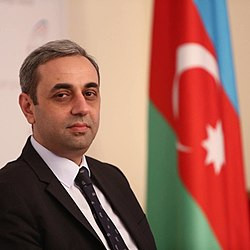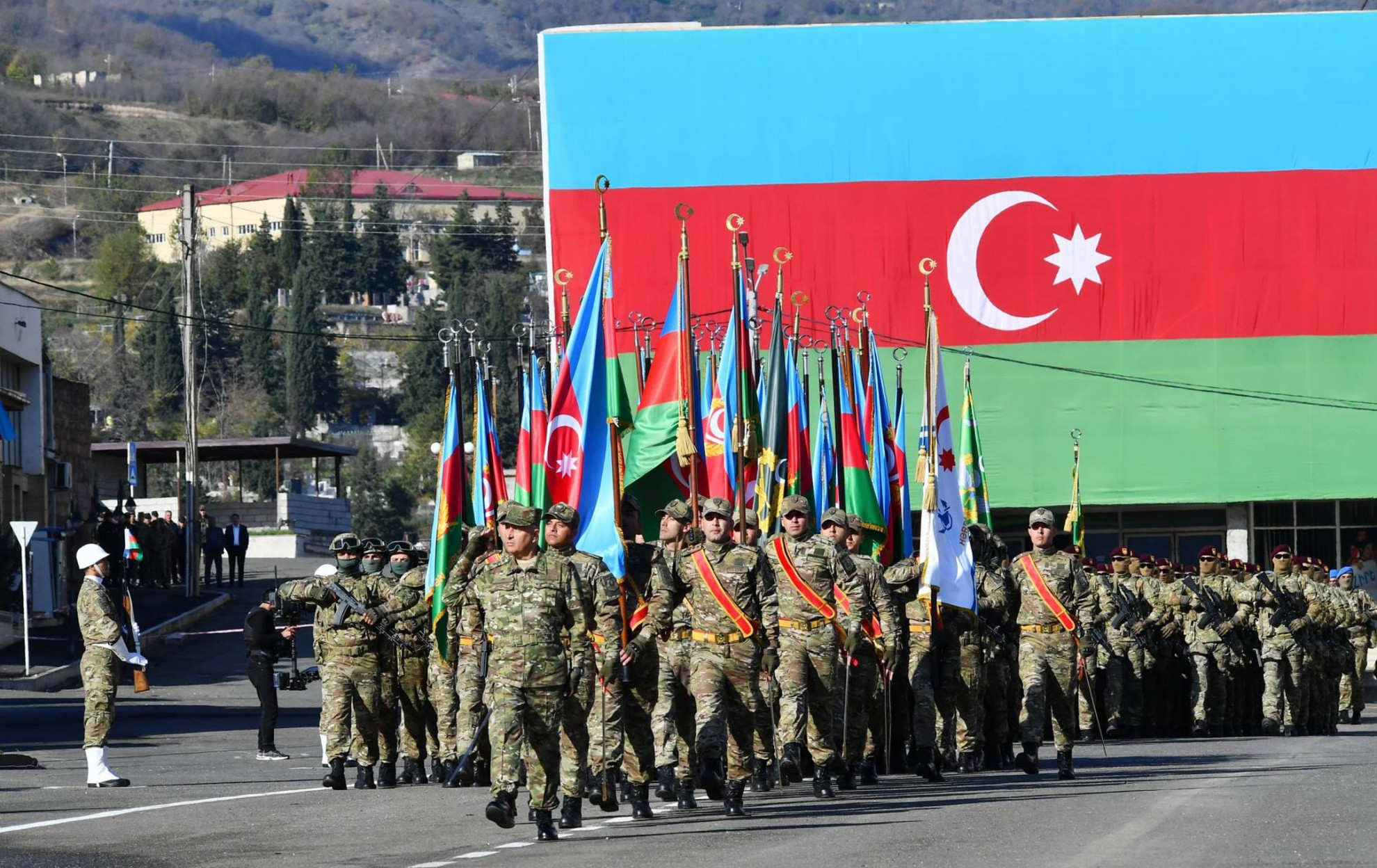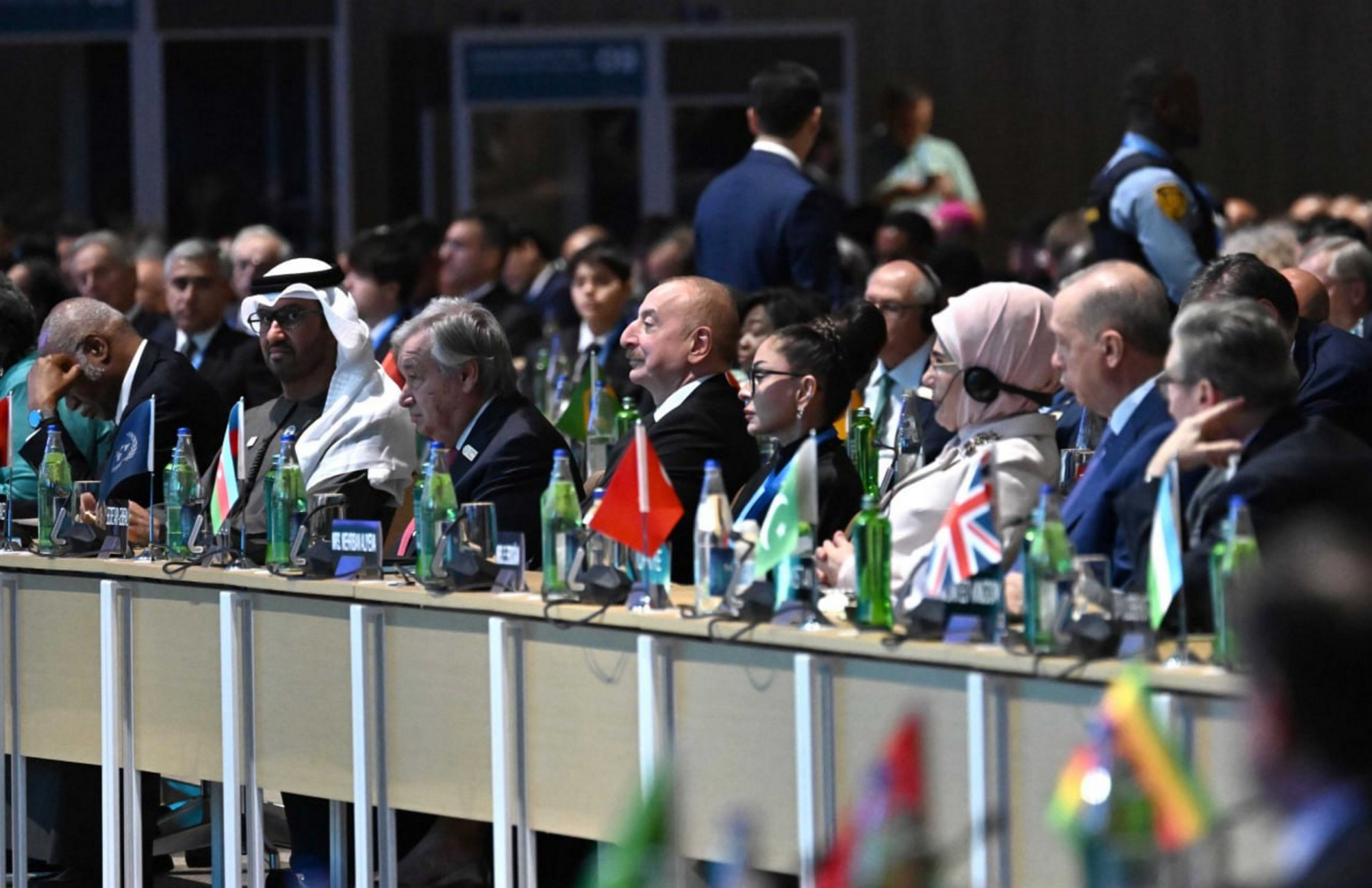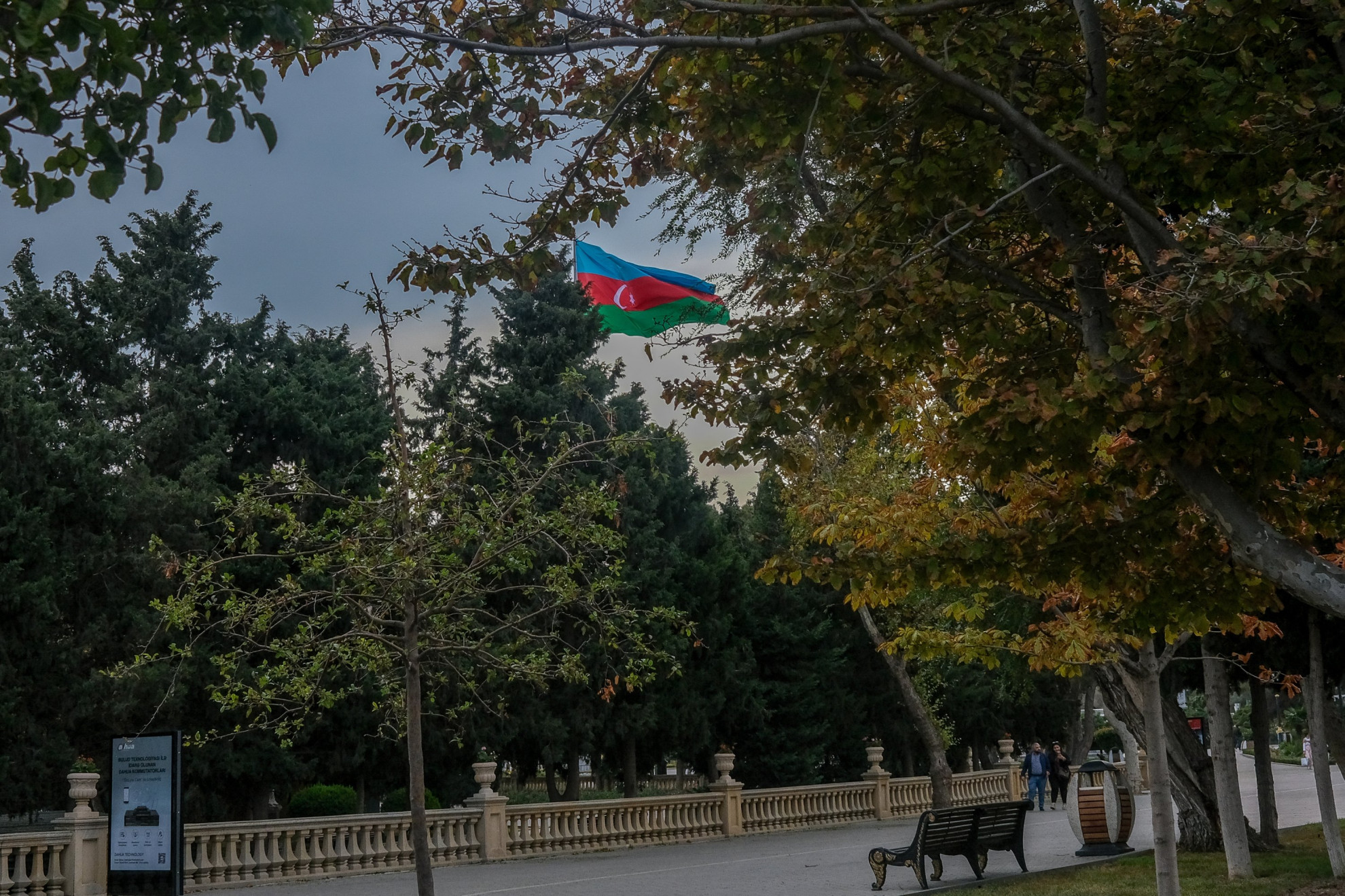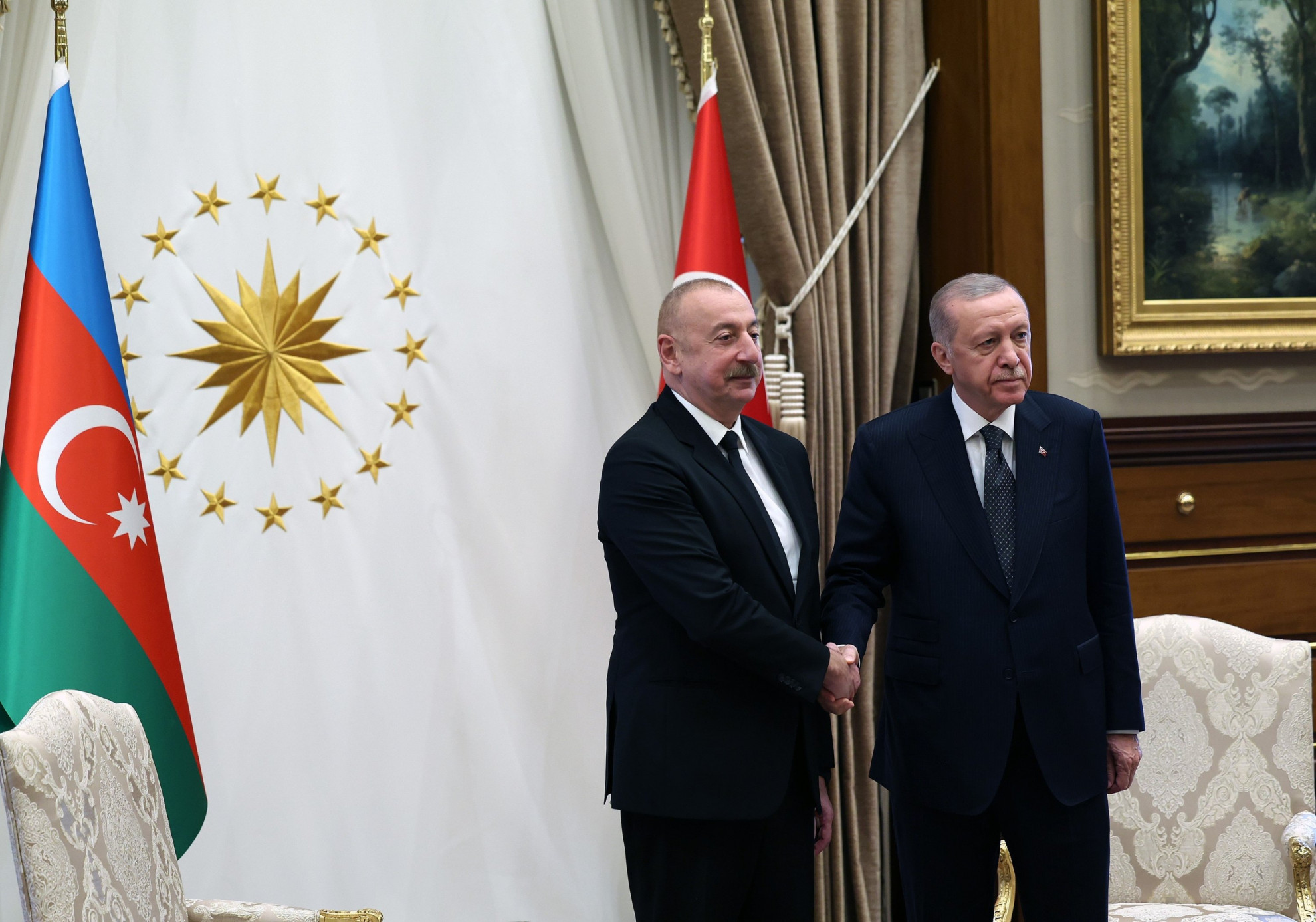While negotiations on a peace agreement between Armenia and Azerbaijan continue, Azerbaijani President Ilham Aliyev gave an interview to Euronews and explained one of Azerbaijan's priorities for a peace agreement with Armenia is to repatriation of Azerbaijanis with the number of 300 thousand who were expelled from Armenia before the First Karabakh War must return to their own lands.
The triumph in Karabakh opened the door to the long-awaited repatriation of Azerbaijanis who had faced forced expulsion from Armenia between 1987 and 1990. It's crucial to recognize that Azerbaijanis were the indigenous inhabitants of the very land that is now part of Armenia. Their historical connection is deeply embedded in the region, evident through numerous artifacts, burial sites and place names that distinctly reflect Azerbaijani heritage. Tragically, the Azerbaijanis have endured expulsion from their ancestral homeland on four separate occasions within the past century. It is disheartening to note that some families faced relentless pressure to relocate over several generations before finally being able to return to their rightful home. Importantly, these expulsions occurred despite the fact that these individuals had committed no crime; their only "offense" was being Azerbaijani, a factor that should never have warranted such unjust displacement.
ADVERTISEMENT
Nevertheless, Azerbaijanis have managed to reclaim their homeland on three separate occasions, showcasing their resilient spirit and unwavering connection to their roots. Notably, these returns were not facilitated by the political will of the Armenian state, and there was a lack of policies promoting their integration. Despite the absence of support from Armenia, these individuals consistently and resolutely returned to their own homeland. This reality underscores a profound devotion to their homeland, emphasizing a deep-seated sense of ownership over these territories. The repeated instances of forced displacement did not diminish their connection to the land; on the contrary, these individuals always maintained a strong sense of belonging. Remarkably, they identified as Armenian Azerbaijanis initially and later as West Azerbaijanis, illustrating a continuous attachment to their heritage.
Moreover, their return to Azerbaijan was met with acceptance, devoid of prejudice. Despite establishing themselves in Azerbaijan, they never felt like foreigners, underscoring the enduring hope to return to their homeland. This enduring connection and determination reflect not only the resilience of these individuals but also the enduring bond between people and their ancestral land.
Following the conclusion of the Second Karabakh War, a renewed sense of hope for returning to their homeland emerged among the affected individuals. In 2022, the community took proactive steps by organizing and establishing a community. Through the development of a comprehensive concept centered on a dignified and secure return, they emphasized their commitment to reclaiming their homeland in accordance with international human rights law. This deliberate effort aimed to demonstrate their intent to return through legal means, countering claims made by Armenian Prime Minister Nikol Pashinyan that implied an aggressive agenda on Azerbaijan's part.
Contrary to the Armenian side's assertions suggesting an invasion motive, it is crucial to recognize that the desire for return originates from these individuals themselves. The completion and submission of the concept paper to international organizations underscored their commitment to addressing the matter through legal channels. Their primary goal was to garner global attention and prompt international organizations to fulfill their responsibilities in facilitating a lawful return. It is important to emphasize that the aspirations of these people are centered around seeking assistance and attention from international organizations rather than resorting to armed conflict. Their approach reflects a reliance on diplomatic and legal avenues, highlighting a commitment to resolving the issue peacefully and lawfully.
Motivations for return request
The desire for their return is driven by three specific reasons. Firstly, it aligns with their legal right under international human law. Their aspiration is rooted in the recognition of this right, emphasizing their wish to reclaim their native lands through lawful means. Human rights issues are now part of international law. Naturally, countries that call themselves human rights defenders are expected to provide help in this regard.
Secondly, these people are motivated by a voluntary return to their historic homeland. Through collective efforts, they have united to actively pursue and work toward this objective.
Third, one of the most important issues is the development of a peace agreement between Azerbaijan and Armenia. Of course, recognizing the complexity of negotiating peace between two nations with a history of conflict, necessitates diplomatic, political and legal considerations. Addressing two key components becomes important: firstly, restoring the region to its pre-war state, and acknowledging the legal and equitable right of Azerbaijanis to return. Secondly, fostering peace between communities, which is achievable through the return of Azerbaijanis to their homeland.
It can be said that after the last expulsion, the villages and towns where they lived in Armenia were empty. This might be a justification for a comeback. Over the past 30 years, Armenia has endeavored, albeit unsuccessfully, to settle the Armenian diaspora in these regions, facing the challenge of a demographic crisis.
However, we must acknowledge that there are certain risks involved. The Armenian government's potential rejection of Azerbaijanis' demands to return to their homeland. Aliyev has consistently emphasized that Karabakh Armenians are Azerbaijani citizens who will benefit from all socioeconomic programs. However, similar sentiments and actions have not been observed in Armenia.
Drawing analogies between people who moved from Baku and Sumgayit to other regions and Azerbaijanis who were forcibly expelled from Armenia is an inappropriate comparison for Armenia. This is because Armenians migrated to Baku and Sumgayit as laborers during the late 19th and mid-20th centuries, whereas Azerbaijanis expelled from Armenia are the indigenous people of the region.
Another risk is the "Azerbaijaniphobia" within Armenia. Notably, the decline in the strength of revanchist and nationalist Armenian parties toward the end of the war presents a positive development. However, the issue of "Azerbaijaniphobia" within Armenia must be addressed, and efforts should be made to minimize the influence of extremist parties.
Given past experiences, establishing a protective mechanism is crucial to prevent the potential return from descending into another tragic conflict. The United Nations could play a pivotal role in implementing security measures, ensuring a safe and orderly repatriation process.
In summary, the term repatriation refers to the return of refugees to their country of origin. Being a refugee is meant to be a temporary condition, which ends when the situation in the country of origin has changed and the threat to the individual concerned has disappeared. In such cases, a refugee may decide to return or agree to be repatriated to its country of origin. The war is over and the repatriation of Azerbaijanis to their homeland is inevitable.

